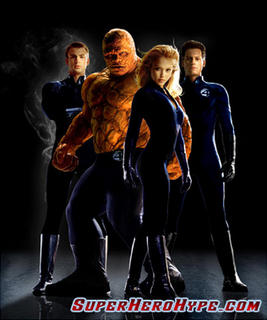There have been a number of recent episodes where Tomorrow linked without permission to blogs whose owners, for various personal reasons, strongly desired privacy. For example, there was a young female blogger whose boyfriend had jilted her and left her with an unwanted pregnancy. Tomorrow linked to her blog and drew a huge amount of unwanted publicity to her personal life. She was left feeling distraught and upset, in emotional tatters.
The Tomorrow editors have now officially stated their hyperlinking policy. Agagooga wrote:
"We have observed some flak in various quarters of the blogosphere about our policy of not asking for permission before linking people's blog posts ....
The default position on the web is that you do not need someone's permission to link to them, and in the absence of other signs, this is the position we take. We don't expect everyone who does not wish to be linked by us to put up one of those the "Tomorrow i'm not free lah!!" buttons.
However, we visit each and every blog post submitted to Tomorrow before we publish it, and if the blog has a specific "please ask for permission before you link" notice in the sidebar, we will not link it, even if it lacks password protection or the aforementioned buttons; if there is no disclaimer or notice, we will have no qualms about linking the post.
The reasons for this policy are simple. If we were to ask for permission from each and every author, not everyone would respond promptly, if indeed they bothered to respond to our queries at all. As a result, the quantity and quality of blog posts on Tomorrow.sg would plummet precipitously. More importantly, linking is the lifeblood not only of blogging, but of the Internet itself - if permission had to be sought for each and every link, the World Wide Web would not exist in a recognisable form, if at all."
At one level, Mr Wang agrees with Tomorrow's position, for the reasons that Agagooga has stated. Mr Wang himself regularly links to other bloggers' posts without seeking their permission. Although "Did Mr Wang Say So?" is on a much smaller scale than Tomorrow, the same principles ought to apply.
On the other hand, Mr Wang uses his brain when choosing his hyperlinks. And Mr Wang considers it inappropriate for Tomorrow to take an overly cavalier approach to this task. It is one thing to say, "Oh, YOU put your personal story on the Internet yourself, don't blame US for publicising it." This kind of excuse, while not entirely invalid, is a poor excuse for the Tomorrow editors to display bad editorial taste, to make bad editorial choices and to be lousy human beings.
Tomorrow (or any other blog) is perfectly free to act as a screaming tabloid if it wants to. It doesn't necessarily follow that it is a good thing for Tomorrow (or any other blog) to act as a screaming tabloid. And the fact that people didn't stick "Respect My Privacy" banners or buttons all over their own blogs doesn't mean that a Tomorrow editor can't exercise some good judgment on his own accord to do what's right.
Allow Mr Wang to give a simple example. Mr Wang knows of a blog run by a divorced woman (let's call her X). According to X's own account, her ex-husband had been unfaithful and promiscuous. X's blog contains many details of the man's sexual misbehaviour. Although X is now divorced, she continues to live in fear of the possibility that she may already have contracted AIDS or some other sexually-transmitted disease from her ex-husband.
Not too long ago, following the publication of a certain Straits Times article, Mr Wang wrote a post about AIDS. This post concerned AIDS risk factors for married people (as opposed to sexually active singles). It focused on the possibility of one spouse being unfaithful, thereby exposing the other spouse to the risk of AIDS. X's personal account would have been very relevant to Mr Wang's post, and Mr Wang briefly considered hyperlinking her blog. Indeed, X's dramatic example would have added an important extra dimension to Mr Wang's comments on a health matter of public interest and concern.
However, Mr Wang almost immediately dismissed the hyperlinking idea. Mr Wang felt that it would not be right to intrude in this way into X's blog. The issues touched on a clearly private and sensitive area of X's life and her blog had the "personal diary" feel. As human beings, we ought to have some basic respect for other human beings' privacy, and on this basis, Mr Wang decided not to hyperlink to X's blog.
There are blogs, there are blogs, and then there are blogs. There are some posts which you know you can link to without hurting anyone's feelings or causing anyone to feel invaded. Then there are other kinds of posts, concerning private aspects of people's lives, to which you know you should not draw publicity, if you were a fair, decent human being. And no, it does NOT matter that these people were not Internet-savvy enough to use password protection, or to understand the risks and use a paper diary instead etc.
Mr Wang looks at Agagooga's comments above. Regrettably, Mr Wang does not see any sign, any trace at all, that Agagooga shares Mr Wang's views on the desirability of people voluntarily respecting each other's privacy. Cowboy Caleb, another Tomorrow editor, is even more disappointing. Look out, folks. Nothing much is sacred any more.

Just as well she didn't live to see Tomorrow.



































